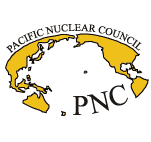 会议动态
会议动态 重要日期
重要日期
摘要截稿时间:
2021年07月15日
延长至 2021年12月31日
全文截稿时间:
2022年01月31日
延长至 2022年02月06日
录用通知时间:
2022年02月05日
延长至 2022年02月25日
在线注册开通:
2021年09月01日
延至 2021年11月2日
在线优惠截止:
2022年01月31日
延长至 2022年02月29日
在线注册截止: 2022年03月31日
现场注册时间: 2022年04月05日
Patrick MARITEAU
Patrick MARITEAU began his career at as commissioning engineer and then operation engineer for the Superphenix sodium fast reactor (1200 MWel). After a few years as operation engineer he came to a new position in EDF head quarter where he contributed to the operation experience feedback of PWR EDF fleet. In 1989 he moved to PENLY NPP (2 x 1300 MWel PWR units) as nuclear safety department manager and then mechanical maintenance manager. In 1995 he came back to Superphenix as nuclear safety director and was involved in the nuclear safety assessment of the first stage of the plant decommissioning after the decision to definitively shutdown the plant in 1997. In 2000 he was appointed as deputy station manager in Phenix sodium fast reactor (250 MWel) and was deeply involved in the lifetime extension of the Phenix plant. Phenix being successfully restarted he was appointed in EDF nuclear inspectorate as Team Leader of nuclear safety review team in charge of periodic assessment of the operational nuclear safety of EDF nuclear power stations. With the beginning of the new French SFR ASTRID programme he went to EDF/Engineering Division/SEPTEN in 2010 were he was given the charge of GEN4 nuclear safety development. Since 2014 he is appointed as Engineering and design department manager in EDF China Division and is mainly involved in the Chinese/French cooperation regarding the GEN3 reactors. During his career he also participated in numerous missions for the World Association of Nuclear Operators (WANO) and the IAEA.
Cecilia MARTIN DEL CAMPO
Professor and Researcher at the College of Engineering of the National Autonomous University of Mexico (UNAM). Ph.D. in Physical Sciences (Reactor Physics), University of Paris XI (Orsay). Ingénieur en Génie Atomique (INSTN, Saclay, France). B.S. Energy Engineer of the Autonomous Metropolitan University of Mexico. Member of the Academy of Engineering of Mexico. Member of the American Nuclear Society. Member of the Mexican National System of Researchers (SNI level II). Member of the Mexican Nuclear Society. Member of the Sub-academic Council of Energy at the Graduate Engineering Program of the UNAM. Member of the Academic Council of the Graduate Engineering Program of the UNAM. Member of the Energy Committee of the Civil Engineering School. Member of the Mexican Academy of Sciences.
Shenjie GU
Mr. Shenjie Gu received his Bachelor’s degree (BE) in Electrical Power System from Hefei University of Technology in 1991 in China, and got his Master’s degree (MS.E) in Nuclear Engineering and Radiological Sciences from University of Michigan (Ann Arbor) in 2003 in US.
With more than 24 years of design and technical management experiences from a dozen of NPP projects (units), he is specialized in electric power and I&C system design for nuclear power plant (NPP), equipment qualification (EQ) and ageing management (AM) methodologies development and application, code and standard system research and development for NPP, and is familiar with NPP design and licensing process.
Now, he is the Deputy Chief Engineer of Shanghai Nuclear Engineering R&D Institute, as well as member of some technical organizations, including IAEA EQ/AM WG, IEC TC45 WG, IEEE NPEC/ ICP, Expert Group of Shanghai Science and Technology Committee, and Expert Group of National Key Lab of Special Cable Technology, etc.
Takashi Takata
He got a master degree of engineering in Tokyo Institute of Technology in 1992 and got a Ph. D thesis in Osaka University in 2007. He joined in Kawasaki Heavy Industries, Ltd. in 1992. In 2005, he moved to Department of sustainable energy and environmental engineering, Osaka University and then joined Japan Atomic Energy Agency (JAEA) in 2015. Now, he is a senior research engineer in System Safety Analysis Group, Fast reactor Computational Engineering Department, Advanced Nuclear System Research and Development Center, JAEA.
His major is numerical simulation of thermal-hydraulics, safety engineering and probabilistic risk assessment (PRA) methodology especially for sodium cooled fast reactor. He is also a member of the section committee of lever 1 PRA in Atomic Energy Society of Japan (AESJ).
Zhiwei ZHOU
Zhiwei Zhou, a professor of the Institute of Nuclear and New Energy Technology (INET) of Tsinghua University, Beijing, P. R. China. Zhiwei Zhou got BE,ME and PhD degrees of Tsinghua University in 1982, 1984 and 1989 respectively. From 1990 to 1997, he worked as a Postdoc and assistant at EHT Zurich and got Dr. tech. Sc of ETH Zurich in 1996. From 1997 to 1998, he worked as a scientist at GRS Garching Research Center. In 1998 to 1999, he worked as a consultant at the training center of Dayabay NPP. From 1999 to 2002, he served as a professor and division head of the INET of Tsinghua University. From 2002 to now, he has occupied a professor vacancy of the Nuclear Engineering Institute of INET of Tsinghua University. His main research interests include studies on advanced nuclear reactor design, fusion-fission hybrid reactor conceptual design, accelerator driven nuclear power system design and also on nuclear physics, thermal-hydraulics and nuclear safety. He is the project leader coordinating the project entitled Severe Accident Mechanism and Phenomenological Study of the state major R&D program for Large PWR. He has been selected as the advisory committee member of Chinese State Magnetic Confined Fusion Energy Special Program. Furthermore, he also served as the editorial board member of a number of technical journals.

